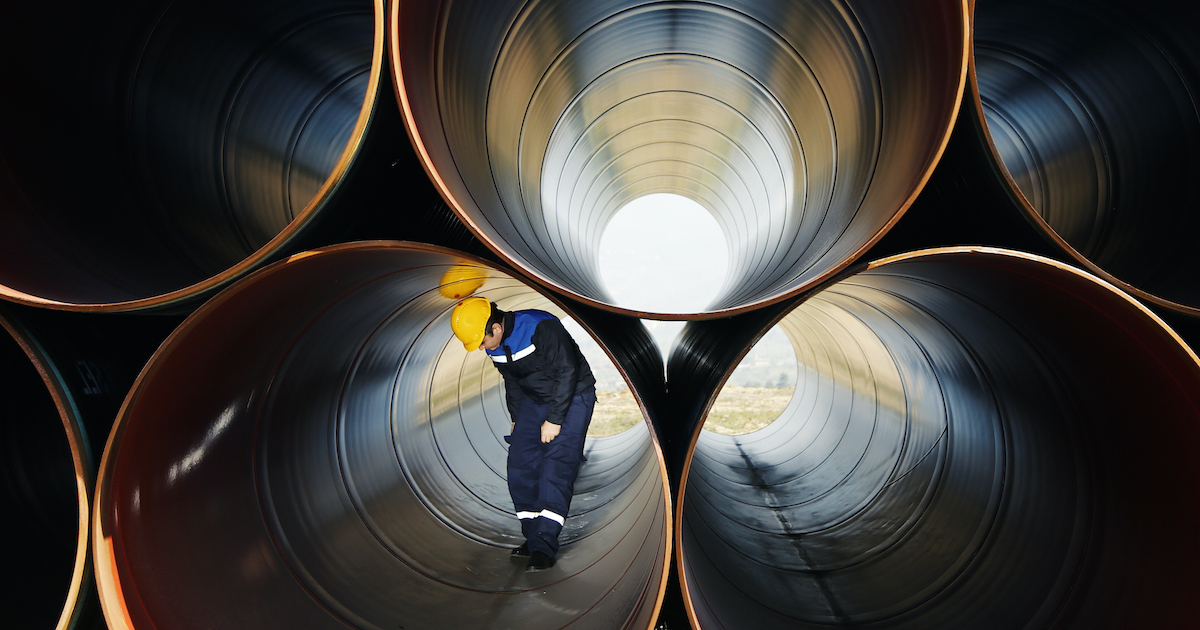Tackling methane emissions: Europe's climate blind spot
Uncontrolled oil and gas methane leaks undermine the EU’s progress toward climate stability

Europe is key to reducing methane
As a major consumer of natural gas, Europe plays a significant role in driving an urgent climate problem: methane emissions. At least one-quarter of today’s warming is caused by man-made methane emissions – and the oil and gas industry accounts for about 25% of this.
Europe sources much of its gas from Russia, Norway and Algeria and also imports gas from the United States, Qatar and Nigeria. Most of the methane emissions associated with such imports occur before the gas reaches the EU. The ‘methane footprint’ in producer countries is estimated to be between three and eight times the emissions from the domestic EU gas supply chain.
The new EU Methane Strategy starts to unlock Europe’s methane mitigation potential. But the European Union has an opportunity to achieve even more by directly addressing emissions associated with EU gas imports.
Download EDF's policy brief PDF
A no regret climate measure
Under the IPCC 1.5 degree C scenario, oil and gas production continues for several decades, but falls off much more steeply than in other scenarios.
If we are to avoid the worst effects of climate change, we must fundamentally break our dependence on oil and gas as primary energy sources, while also deploying technologies that reduce emissions from the production and use of these two fuels.
The problem can be solved
According to the International Energy Agency, the oil and gas sector can cut methane emissions by 75% using current technologies – up to two-thirds of that at no net cost.
Leading companies, including many headquartered in Europe, have committed to methane targets and begun deploying mitigation efforts. At the same time, new projects like MethaneSAT are helping lead the way for a host of new innovations that will make it faster, easier and cheaper to reduce methane emissions.
Time to act
There are currently no legal requirements ensuring that gas consumed in the EU is produced responsibly. But policy makers in Brussels are exploring a variety of legislative measures to achieve the objectives outlined in the EU Methane Strategy. This includes important safeguards for sustainable production practices such as regular leak detection and repair, and restrictions on venting and flaring.
A methane performance standard would complement these measures and ensure significant reductions in methane emissions. EDF's new policy brief, developed together with the Florence School of Regulation, describes policy pathways for a methane performance standard for natural gas to address upstream emissions for both imported and domestically produced gas.
To achieve the Paris Agreement temperature goal, the European Commission's Fit-for-55 Package must tackle emissions in the energy system today, while creating the framework for Europe’s sustainable future. Reform of the EU gas package represents the next big opportunity for policy makers to demonstrate that climate will be a cornerstone of EU energy policy.
Read related blog posts on our Energy Exchange blog
Additional resources
- Study: Scenarios, Effectiveness and Efficiency of EU Methane Pricing in the Energy Sector [PDF]
- Analysis: Environmental Defense Fund feedback to the Sector Integration consultation [PDF]
- Analysis: EDF’s good practice on methane policy and regulation [PDF]
- Analysis: Response to DG ENR’s stakeholder consultation on the EU methane strategy [PDF]
- Press release: European Satellite Data Reveals Extreme Methane Emissions in US Oil & Gas Field
Staff perspective
The single fastest way to slow the rate of warming right now, even as we continue to decarbonize our energy systems, is to cut methane emissions from the oil and gas sector.
Mark Brownstein
Senior Vice President, Energy Transition











